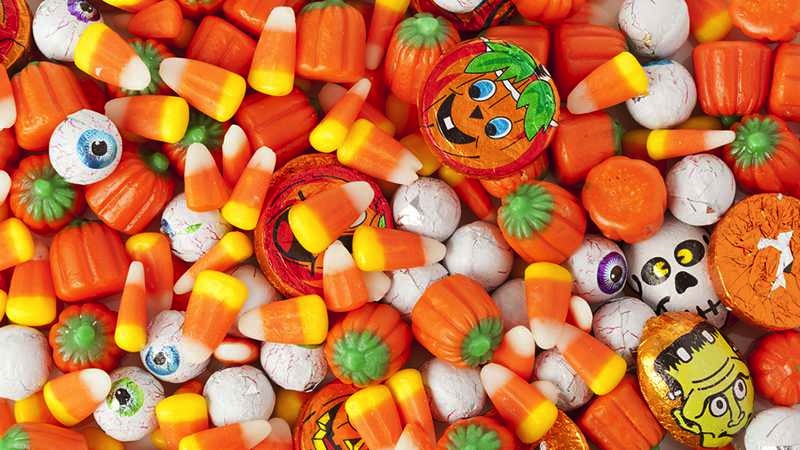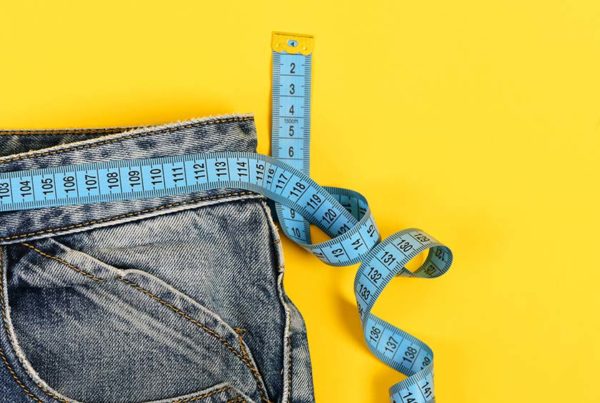
Halloween kicks off the so-called “holiday season.” Millions of children — and adults — gobble down pounds of sweets, finishing just in time for the next holiday feeding frenzy.
Thanksgiving, Christmas, New Year’s and other holidays leading to the Super Bowl parties can be devastating to health. By the end of a span of a few fast weeks, many have gained weight, lost health, got the flu, and often visit their doctor for help. Healthy people avoid this scene, and now is the time to decide which road to take: health or illness. (Many people find the Two Week Test to be very helpful in getting or staying on the road to better health.)
The dependency on sugar consumption is an addiction; weaning oneself off it is not easy. For many years, studies have demonstrated that sugar triggers the brain’s pleasure and reward centers—areas in the emotional centers of the brain responsible for the release of “feel good” neurotransmitters called dopamine. These are the same brain areas stimulated by cocaine, nicotine, opiates (such as heroin and morphine), and alcohol. This addiction is not an imaginary thing in the minds of millions of sugar junkies—it’s associated with real physiological changes in the brain. And, perhaps because the brain’s pleasure areas are also very close to the pain centers, withdrawal from sugar has been described by many patients as being painful—like romantic pain or eliminating nicotine or caffeine.
Psychoactive compounds present in cocoa and chocolate, salsolinol being the main one, might be why chocolate can also so be addicting. But the high level of added sugar contained in most chocolate products is probably more addictive than the chocolate alone.
Instead of focusing on the issue of sugar addiction and the overfat epidemic, media stories go elsewhere:
- Candy is “recession resistant” because most people can’t go without it, say Larry Graham of the National Confectioners Association in a Fox News interview. This year, coming into the biggest chunk of the years’ profits that starts with Halloween, sales are beating past years. No surprise. Graham says that consumer overindulgence of candy’s “inexpensive indulgence” is not concerning. About a quarter of all candy sales occur during the holidays. But the reality should be a concern for everyone: among the problems for individuals is that about half of the sugar consumed turns to stored body fat.
- An article by Forbes online (http://www.forbes.com/sites/erikkain/2011/10/17/is-child-labor-going-into-your-halloween-candy/?feed=rss_home) addresses the serious problem of child labor abuses in African cocoa farms. The International Institute of Tropical Agriculture says that there were 284,000 children working on such farms, often in dangerous conditions, often in some form of indentured servitude. These plantations supply chocolate to major US candy makers. You can avoid this issue by buying organic cocoa and making your own healthy treats.
Many people have trouble accepting the notion that sugar is addicting. “More scientific studies are needed” is the mantra often voiced by the media, the sugar industry, and its lobbyists, and sugar addicts. This denial is a convenient cop-out—of those addicted and especially by those who reap monetary benefits from sugar and sugar-containing products. (To this day, the tobacco industry also claims that, “more studies are needed,” to determine whether cigarette smoking or second-hand smoke is harmful.)
Is sugar addicting? Just ask the millions who are, and those who have been able to escape it. And by spring, just in time for Easter, many will be asking why they keep gaining body fat each winter. (Read more on Sugar Addiction.)
Does this mean we have to go without delicious desserts and chocolate treats? Certainly not—I don’t. It’s easy to avoid unhealthy high glycemic treats because there are healthy alternatives. And if you think they’re not just as tasty or easy to make, you’ve never tried the many recipes for fudge, Phil’s Bars, chocolate cake and many other desserts in Recipes!
Below is a list of the 10 Best & Worst Holiday Habits.
The Best Holiday Habits:
- Maintain a healthy lifestyle
- Be with those you want to be with
- Stick with a holiday budget
- Balance work and pleasure
- Get enough sleep
- Stay at home and have fun
- Do things you’re passionate about
- Shop locally
- Buy & receive only healthy gifts
- Share healthy food
The Worst Holiday Habits:
- Spending money you don’t have
- Visiting people you don’t like
- Going to parties you’d rather avoid
- Eating things you don’t want
- Drinking too much alcohol
- Last minute shopping
- Holiday travel (especially at peak periods)
- Going on a diet January 1st
- Gaining weight
- Buying unhealthy gifts








